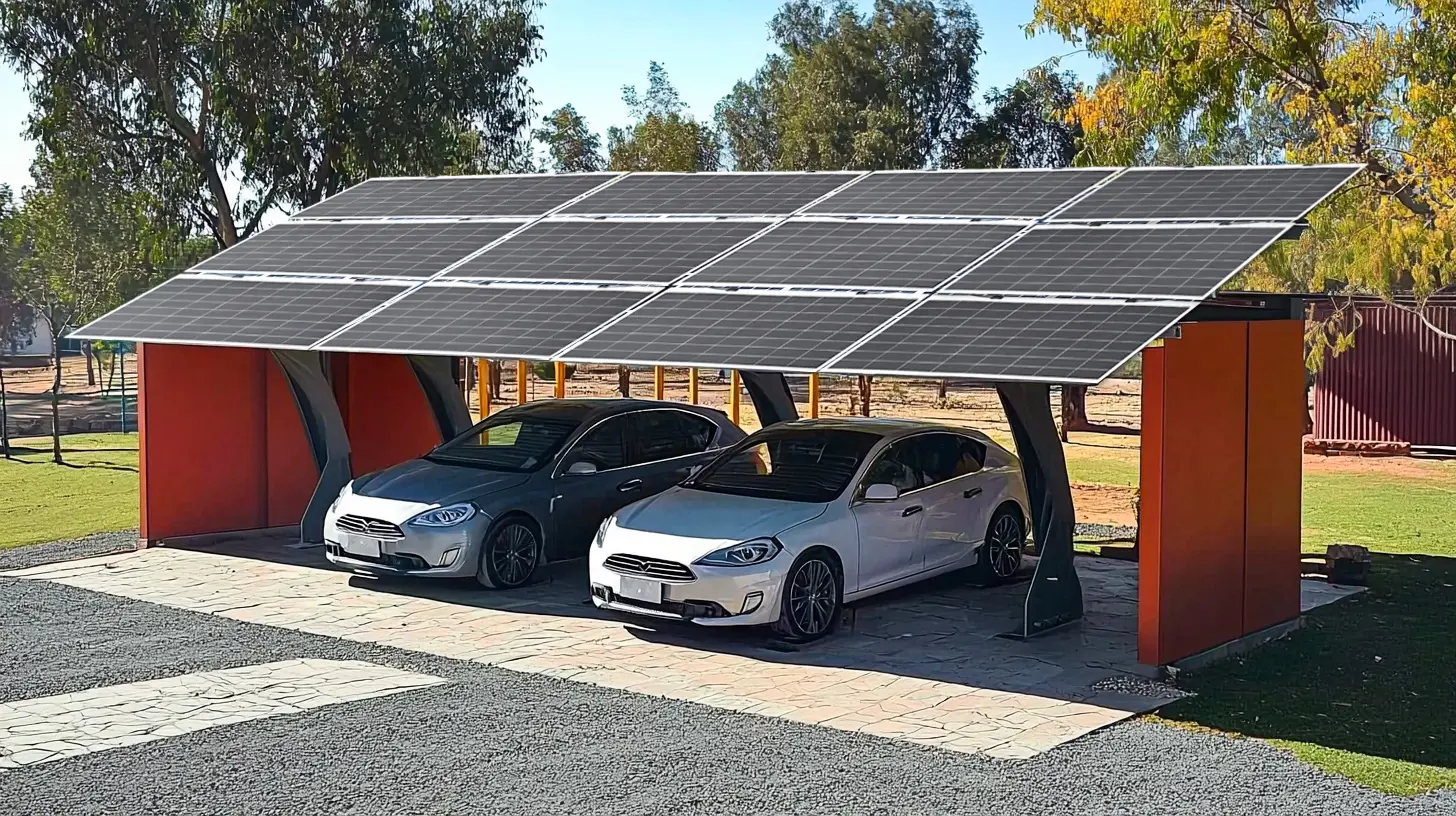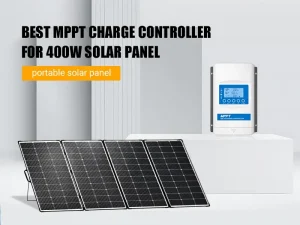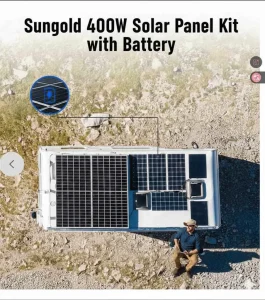Unlocking the right flexible solar panel for your setup, what to check, where they shine, and where they don’t.
Here’s the thing: when you’re shopping for a solar solution and your surfaces aren’t standard flat rooftops, you’ll hear about flexible solar panels. These are photovoltaic modules built to bend or flex (within limits), making them a strong option for curved roofs, boats, caravans, camping rigs, and yes, even 12 V systems.
In this guide, we’ll walk you through what flexible solar panels are, why you might choose them, where they make sense (and where they don’t), and how to pick one wisely.
If you’re exploring flexible solar panels for camping, considering 12-volt flexible solar panels for an RV, or sourcing them from a reliable flexible solar panel manufacturer or suppliers, you’ll find practical advice here.
Let’s break it down.
What Are Flexible Solar Panels and How Do They Work?
Flexible solar panels (sometimes called bendable or rollable solar modules) are photovoltaic modules built with thin-film or back-contact crystalline cells on a lightweight, flexible substrate.
What this means is: unlike heavy glass-covered rigid panels, many flexible panels can be mounted with adhesives or minimal racking, and conform to curved or lightweight surfaces. For example, a 12 V flexible solar panel may be designed specifically for small battery systems in RVs, boats or off-grid cabins.
The key terms to keep in mind:
- Flexible solar panel manufacturer/suppliers: The companies that design and deliver these kinds of modules.
- Flexible solar panels 12v / 12 volt flexible solar panels: These denote panels configured to output around 12 volts (or compatible with 12-volt systems), especially common for portable or mobile installs.
- Flexible portable solar panels: Emphasise mobility or ease of relocation.
- Flexible solar panels for camping: A specific use-case niche where the flexibility and portability pay off.
How Has Flexible Solar Panel Technology Evolved in 2025?
What’s new and pertinent? The basic idea is the same, recent developments:
- Modules that are lighter and have greater durability and better adhesives that allow direct installation on surfaces that are curved, but without excessive racks.
- A greater emphasis is placed on mobile/off-grid applications (camping boats, caravans, camping) instead of complete roofings on homes.
- The research team is investigating flexible solar cells (ultra-thin films) that could eventually provide lighter weight and innovative applications.
- But still, the performance gap (efficiency, lifespan) versus rigid panels remains significant. For instance, flexible panels often deliver lower power conversion and shorter warranty periods.
Here’s what this really means: If you’re buying from a flexible solar panel manufacturer or supplier today, you’re getting a product that’s highly suited for certain applications, and understanding its limitations is crucial.
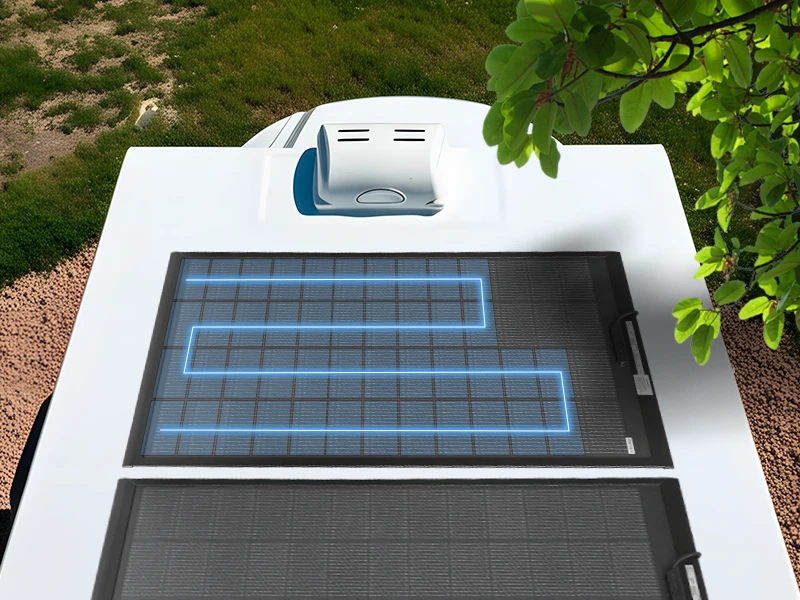
Where Can Flexible Solar Panels Be Used?
Flexible panels shine in certain settings. Here’s a quick table:
ApplicationWhy Flexible Panels Work Well
RVs / Caravans / Camper vans Curved roofs, low weight load, mobile power.
Boats & Marine Lightweight, conform easily to hulls or surfaces.
Camping & Outdoor Kits Portable 12 V panels for battery recharge off-grid.
Curved or Architecturally Unique Roofs Surfaces where rigid panels cannot be mounted easily.Temporary/Portable Installations Events, mobile units, tents, glamping setups.If you’re wondering whether a “flexible portable solar panel” is right for your project, ask: Do I have a standard flat roof with full capacity? Or do I have a curved, lightweight, mobile or remote surface? If the latter, flexible may be the best match.
What Are the Pros and Cons of Flexible Solar Panels?
Pros
- Flexible and lightweight: Ideal for curving surfaces and roofs that are not able to bear loads.
- Design compatibility: Translucent and low-profile alternatives in BIPV.
- Easy to DIY-Friendly: No racks, less installation required, ideal for remote locations.
- Resistant to Shock: There is no glass that offers better durability for apps for mobile devices.
- Portable: Semi-rigid or rollable forms that can be reused frequently.
Cons
- Low Efficiency: Typically 15-20%, as opposed to 20-25% in Glass panels.
- Shorter Lifespan: 10-20 years, depending on material & use.
- Heat Derating: The Plastic base does not disperse heat well in high temperatures.
- Higher cost Per Watt: Due to less power output and a special material.
- UV/Seal Vulnerability: May require protective coatings for long-term exposure.
How to Choose the Right Flexible Solar Panel?
Okay, so you’ve decided you might go for flexible. What should you check? Especially when you’re buying from a flexible solar panel manufacturer or flexible solar panel suppliers, or looking at 12-volt flexible solar panels.
Here’s a checklist:
- System voltage compatibility: If your setup is 12 V (common in boats, RVs, camping), ensure you buy panels rated for “flexible solar panels 12v” or compatible.
- Output of power (wattage): For example, a camping set-up may just require 100-200 W of mobile solar panels.
- Surface area and efficiency are important: In the event that the panel is more inefficient, it will require more surface area. Examine the technical specifications.
- Weight and thickness: Especially for curved surfaces or mobile use, lighter panels matter.
- Mounting method and bending radius: Some flexible panels can bend to 30°, 45° or more, but you still must respect manufacturer limits.
- Certifications and durability: CE, UL, IEC ratings, and warranty period. Important when sourcing from the flexible solar panel manufacturer category.
- Brand reputation and support: Especially for non-standard installs, pick trusted suppliers who offer good service.
- Warranty and lifespan: Ask: how many years, what degradation rate, what happens in harsh conditions (heat, salt-water, vibration).
How to Install Flexible Solar Panels Safely and Efficiently?
Here’s some practical advice, what I often tell clients.
- Cleanse the surface thoroughly: Get rid of any oil, dust or remnants prior to mounting adhesives.
- Mounting method: The method of mounting is adhesive bonding (industrial silicone VHB tape), as well as magnets, and rivets to attach metal surface. Follow the directions of the manufacturer.
- Be aware of the bend limits: The panel you are considering is only designed for a mild curve (say up to 30 degrees). Don’t make it more bendy.
- Connector routing and route: Use waterproof connectors (MC4 and equivalent). Avoid sharp bends and ensure that the voltage drop stays within the limit.
- Ventilation and heat dissipation: Even flexible panels require airflow under to prevent overheating, which could reduce the output.
- Edge protection: On mobile applications (boats/vans), add small frames or brackets to stop wind-lift or edge peeling.
- Maintenance checks: Look regularly for delamination, hotspot signs, water ingress or fatigue on mobile installations.
- Safe electrical installation: If combined with batteries/inverters, ensure your charge controller matches panel output and system voltage.
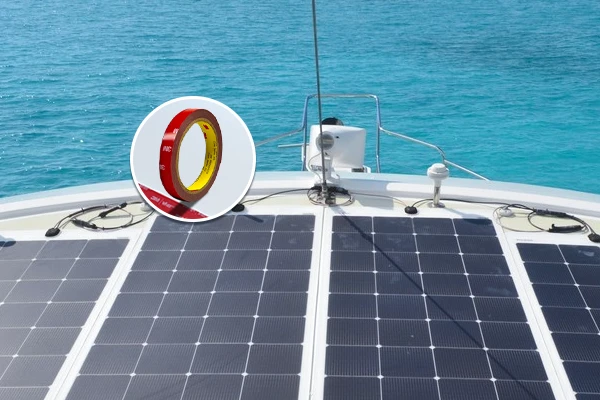
Case Study: Sungold Solar Flexible Panel Applications on Boats & Rooftops
Boat Hull Installation: 5.28kW of Sungold Panels
Hungarian sailor Máté mounted 48 x 110W directly on his aluminium catamaran hull using rivets. Despite space limitations, the system avoids wind drag and uses the hull as a heat sink. Aesthetic details like painted names were preserved.
Rooftop Upgrade: From Glass to Flexible Panels
Michel replaced 6 x 275W rigid solar modules with 11 x 270W on the boat’s deck. Results:
Feature | Why It Matters |
Voltage rating (12V/24V) | Compatibility with battery/charger systems |
Wattage | Determines how much power you’ll actually get |
Efficiency (%) | Affects how much surface you need |
Weight/thickness | Critical for lightweight or mobile installations |
Bending radius | Curved surfaces need compliant panels |
Certifications & warranty | Reflects quality and long-term reliability |
Supplier/manufacturer | Especially with flexible panels, quality varies a lot |
“Now we can walk safely on deck without yelling ‘stay off the panels!’”
Why Solar-to-Weight Ratio Matters for Marine Solar Projects
If you’re installing on a boat, yacht, or even on a van, weight is not just a number; it affects performance, stability and fuel/drag. Flexible solar panels win here because they reduce weight while adding power. For example, every extra kilogram on a boat can reduce speed, increase fuel consumption or affect balance.
The higher the kW produced per kg of panel weight, the better your installation in mobile environments. Choose panels where you measure not just wattage but “watts per kilogram”, and go with trusted flexible solar panel manufacturer ratings.
In short, for marine or mobile installs, the “solar-to-weight” ratio is a key metric, something you don’t worry about as much on permanent roofs.
Is a Flexible Solar Panel Right for You?
So, what this really comes down to: ask yourself these questions:
- Do you have a curved, lightweight, mobile or non-traditional surface where rigid panels won’t work?
- Is your system 12 V or mobile, where flexibility and portability matter?
- Are you willing to accept somewhat lower efficiency or shorter lifespan for the sake of flexibility and mobility?
If you answered “yes” to those, then go ahead, flexible solar panels may be the ideal option. Choose from reputable flexible solar panel manufacturers and flexible solar panel suppliers, check the specs carefully, and you’ll have a system that performs well in its niche.
But if you’re installing a large-scale rooftop system where space is at a premium and you want maximum output and long life, a rigid solar panel array may still give you better value.
FAQ
Q: Do flexible solar panels work for home rooftops?
A: In the majority of homes, rooftop rigid panels make the most sense because of their higher performance and longer warranty. Flexible panels work well for all kinds of surfaces, particularly ones that aren’t mobile.
Q: How long do flexible solar panels last?
A: Standard longevity is lower than the rigid panels, and could be 10-20 years, depending on the condition and quality.
Q: Can I find flexible solar panels that work with a 12-volt system?
A: Yes, Many solar panels that are portable and flexible are constructed with 12 V power output with the purpose, making them ideal for RVs, camping, as well as boats.
Q: Are flexible solar panels more expensive?
A: They may cost more per watt because you may need a larger area for the same output and because the technology is specialised.
CTA: If you’re ready to explore your next solar setup, whether a 12-volt flexible solar panel for camping, flexible portable solar panels for a boat or van, or sourcing from a flexible solar panel manufacturer for a custom build, feel free to get in touch with us. Here at Sungold Solar, we’ll help you match the panel to the surface, the voltage, the power need and the right supplier.

